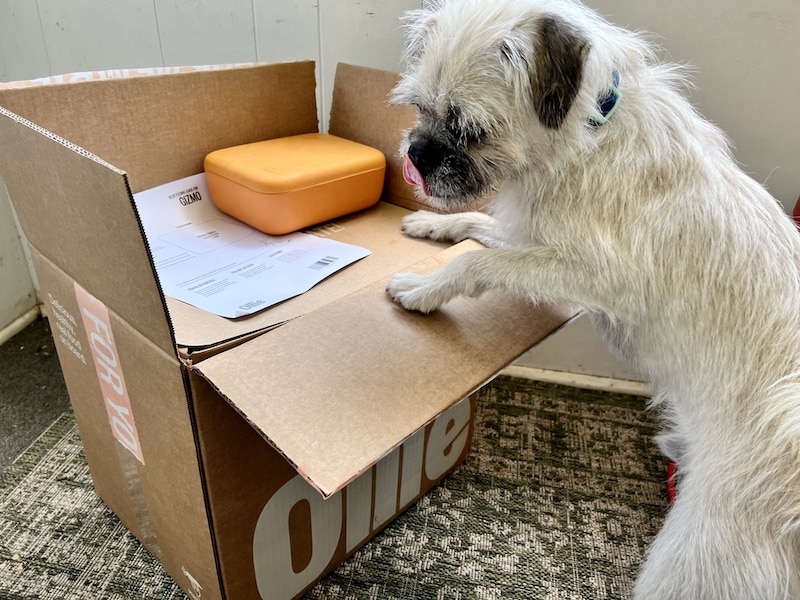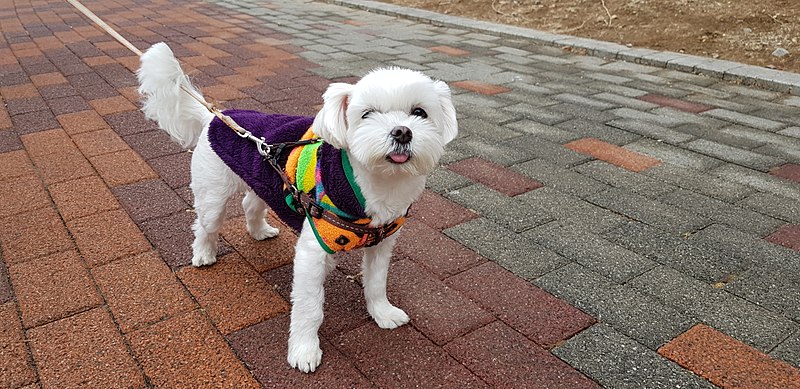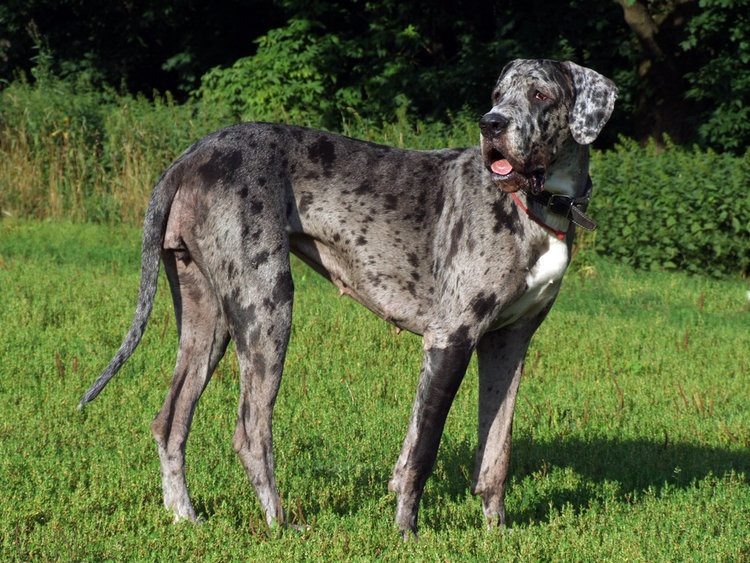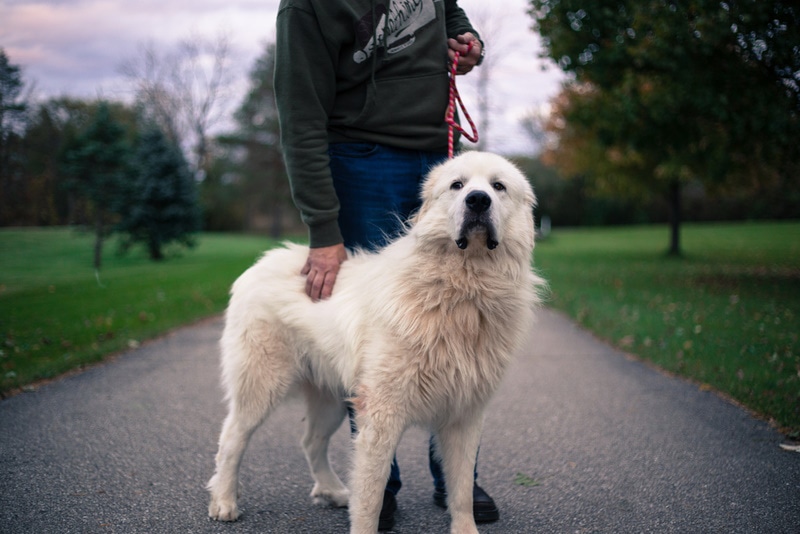My Dog Keeps Smacking Their Lips: 9 Vet-Reviewed Causes
By Kit Copson
Updated on
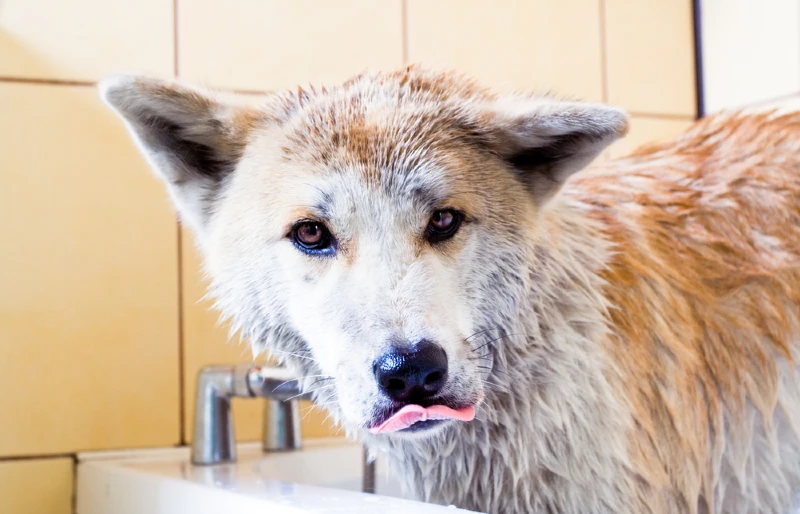
Sometimes, dogs behave in ways that both baffle and intrigue us, including lip-smacking and licking. Although lip-smacking can happen for innocent reasons that shouldn’t be cause for concern, it’s important to work out what could be causing this behavior because there might be a medical issue behind it.
Let’s look at the factors that might cause your dog to smack their lips.
The 9 Potential Causes for Lip Smacking in Dogs
There are various potential causes behind lip-smacking in dogs—some benign and some that may indicate an underlying health issue.
1. Hunger
If your dog is excited because they’re just about to get stuck into something tasty, they might lick and smack their lips or even drool with anticipation. This happens because the very prospect of food can make dogs salivate, whether that’s the smell or the sound of food clattering into their bowl. Lip-smacking and licking may also occur when the dog has finished eating.
2. Stress
Stress is a common cause of lip-smacking in dogs because the action of smacking and licking the lips releases soothing endorphins. Other signs of anxiety and stress in dogs include destructive behavior (for example, chewing or scratching furniture), urinating or defecating in inappropriate locations, excessive barking, head-turning, yawning, pacing, compulsive behaviors, and panting.
3. Submission
If a dog wants to signal to another dog that they’re not a threat, they may smack their lips. As mentioned above, this is a self-soothing mechanism, and your dog may also turn their head or body away from the perceived threat, adopt a friendly, soft expression, yawn, or freeze in place. So, if you see your dog displaying these behaviors, especially around bigger and stronger dogs, this could be the reason.
4. Dehydration
When dogs are dehydrated, their saliva gets thicker and the gums become dry and sticky, factors that may cause them to lick and smack their lips. Other signs of dehydration include dry eyes and/or nose, sunken eyes, weakness, dark urine, panting excessively, vomiting, diarrhea, appetite loss, and loss of elasticity of the skin.
Keep out clean water at all times for your dog and, if you travel, be sure to take your own water and a bowl with you to offer at regular intervals. It’s not a good idea to let your dog drink from natural bodies of water like lakes, ponds, or the ocean due to the presence of saltwater, toxic blue-green algae, or potential organisms that could make them sick.
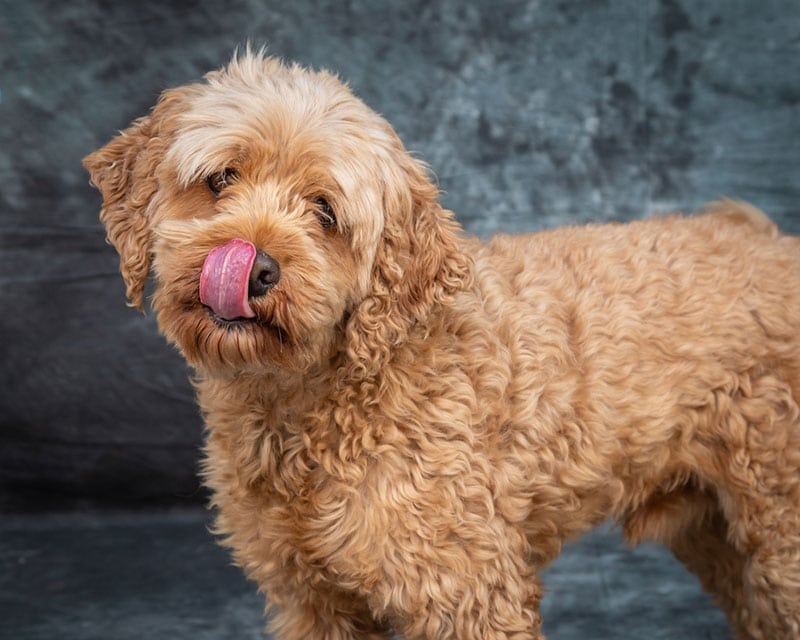
5. Medical Issues
Diseases that cause pain, dehydration, and/or anxiety could all result in lip-smacking, either because the mouth is dry, or the dog is trying to calm down due to being in discomfort or feeling stressed.
Potential medical conditions that could lead to lip-smacking include dental disease, kidney disease, liver disease, bone and joint diseases, seizures, and diseases of the nervous system.
6. Nausea
Lip-smacking in dogs is a common sign of nausea, a feeling of upset stomach that often occurs before vomiting. While nausea might not always lead to vomiting, it is an uncomfortable feeling for a dog. This discomfort can cause the dog to appear restless, drool, and smack their lips.
7. Acid Reflux
A dog that is experiencing heartburn or acid reflux will appear restless, have excessive saliva production, and smack their lips.
When the acidic stomach juices reverse into the esophagus, the sensation is uncomfortable, and the dog is also at risk of developing esophagitis. If your dog smacks their lips often and you suspect that gastric reflux might be the cause, please bring the dog to the vet. Early treatment, which could be as simple as a dietary change and medication, will prevent a simple issue from becoming esophagitis or even ulcerations.
8. Salivary Gland Issues
Issues with the salivary glands, including salivary mucocele, could also be behind lip-smacking and/or licking. Signs include swelling of an area on the head or neck or under the tongue, drooling, gulping, gagging, eating difficulties, bloody saliva, breathing issues, weight loss, vomiting, depression, fever, and regurgitation.
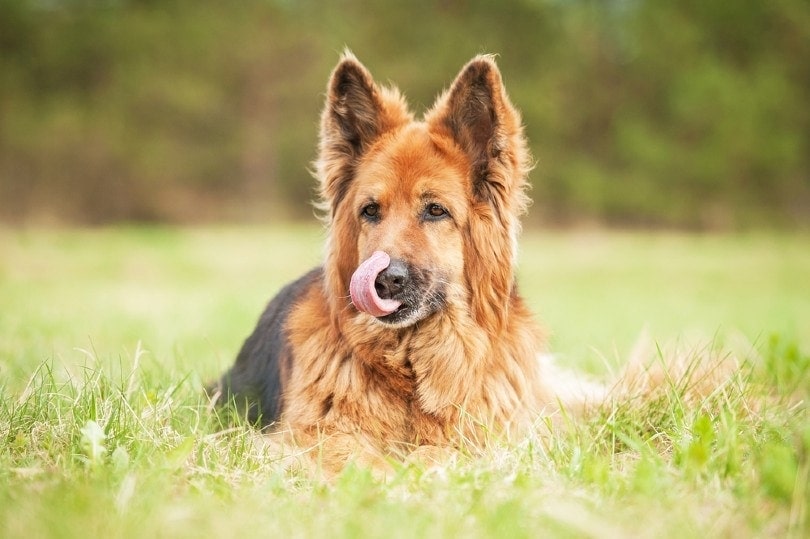
9. Foreign Bodies
Lip-smacking can sometimes be triggered by a foreign object being stuck in the dog’s mouth or throat, like something that they’ve been chewing on, and it’s the dog’s way of trying to remove the object. Excessive salivation is another sign that something’s stuck. If you think that something might be stuck in your dog’s throat, don’t try removing it yourself—call a vet immediately.
Final Thoughts
The best rule of thumb is to assume that, if there’s no food in the vicinity or anything to signal to your dog that they’re about to eat, their lip-smacking is likely caused by either stress, an attempt to appease another dog (or sometimes person) that they feel is a threat, dehydration, pain, discomfort, or a medical issue. Please contact your vet if you suspect a medical issue or injury is causing your dog to smack their lips.
Featured Image Credit: Blazej Lyjak, Shutterstock


